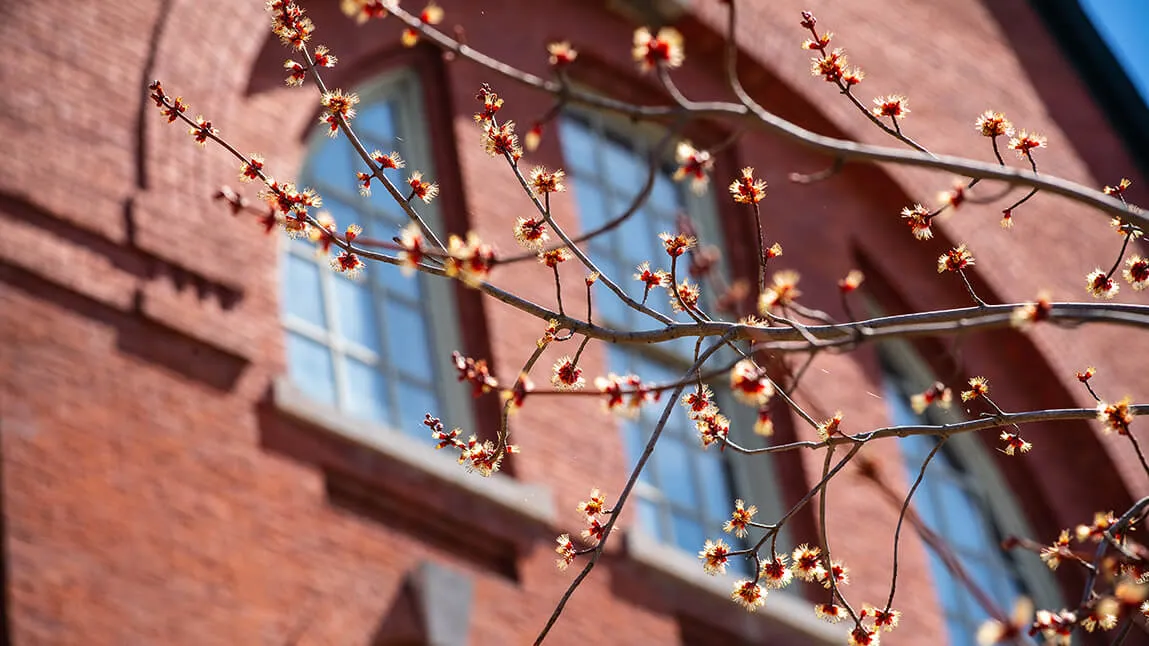Dear Students,
As promised in my February 23 message to you, I am writing to give you a sense of the ongoing dialogue that is occurring with students regarding sexual violence on campus and the steps that we are taking to advance our shared goals for progress.
Since my last message, I have continued communicating with several students and student groups. I am incredibly appreciative of the privilege to speak with students face-to-face and to hear firsthand how passionate and committed they are to changing campus culture. These conversations have been characterized by openness, honesty, and a desire to work together towards a common goal. That common goal is to eradicate sexual violence on campus. I have heard about difficult, often traumatic experiences; I have heard about students’ struggles to feel seen and cared for; I have heard frustration; and I have heard ideas for change. These conversations have created a sense of unity that will be incredibly impactful as we move forward.
I will be working very closely over the course of the semester with Erica Caloiero, our Vice Provost for Student Affairs, Elliot Ruggles, our Sexual Violence Prevention and Education Coordinator and Amer F. Ahmed, our Vice Provost for Diversity, Equity and Inclusion to identify a way forward that honors our students’ lived experiences and partners with you in forming solutions. My colleagues’ diverse experience and deep connections with students are critical to successfully advancing current and future initiatives.
Currently, we are exploring options for reflective dialogue with internal and external facilitators as a direct result of what I have heard so clearly from our student leaders about the importance of direct, face-to-face communication. When we come together to have honest and sometimes difficult conversations, we are open to hearing what others feel, what they need, and what each of us can contribute to this work. I believe that stronger relationships and better communication are the path forward to understanding one another’s perspectives and to collectively make changes.
I have also been talking with Beverly Colston, Director of the Mosaic Center for Students of Color (MCSC). Bev and her team are continuing to empower BIPOC students, across their multiple and intersecting identities, and to use their voice in working with BIPOC-identifying counselors from Counseling and Psychiatry Services (CAPS) to offer racially centered healing spaces for small and large groups to benefit BIPOC student wellness. The MCSC is continuing to work collaboratively with all identity centers (WAGE, Prism, Interfaith) to educate students about critical intersectional issues (e.g., race, gender, sexual violence), advance dialogues across difference, advocate for culturally sensitive institutional practices and nurture our campus capacity to respect the humanity of every student. Bev and her team welcome students who wish to have a personal meeting to discuss whatever is on your mind (802-656-3819; mcsc@uvm.edu)
I want to extend my appreciation and thanks to the staff in Living Well, CAPS, and HOPEWorks for their steadfast support of survivors and other community members, as well as for the impact that Elliot Ruggles is already making in their role as UVM’s Sexual Violence Prevention and Education Coordinator. We are working with staff in Living Well, CAPS and HOPEWorks to increase accessibility of survivor-centered student spaces on campus, recognizing the strong need for students of shared lived experiences to connect with and support one another.
Additionally, we have made progress in our efforts to engage students in supporting and educating their peers around sexual violence prevention. Interested students will enroll in a 1-semester, 3-credit, academic and experiential course that will address both content knowledge (sexual health, sexual violence prevention, survivor support) and focus on building skills as health educators (group facilitation, needs assessment, equity-centered pedagogy). Upon completion of the course, students will be eligible to serve in positions on campus providing workshops and facilitating small group conversations. The recruitment of a faculty member who will teach this academic and experiential course and coordinate our new Sexual Violence Prevention Internship and Peer Educator Program is in its early stages. This new hire will have a strong collaboration with Elliot Ruggles. We anticipate the first course offering in the upcoming academic year.
I want to recognize that failed communications and lack of action create an environment that takes time for healing to begin and trust to be regained. Together with Erica, Elliot, and Amer, I am fully committed to our community and our future. I know many of you feel the same way, and I thank you for your engagement, your support of survivors, and your hopes for the future.
I will be back in touch in a few weeks once we formalize our gathering space for survivors. At that time, I will also share any new information about the new Sexual Violence Prevention Internship and Peer Educator Program.
Just a reminder, the Campus Climate Survey is another important means of gathering information about your experience as a student and providing perceptions that will support the betterment of our community. I encourage you to complete the survey.
While on break, students will have continued access to primary care through Student Health Services (for after-hours medical help call 802-656-3350), CAPS (for after-hours mental health help call 802-656-3340 and press option #2 to reach the on-call counselor) and HOPEWorks (24/7 phone hotline: 802-863-1236; Chatline: https://hopeworksvt.org)
Please get some rest over spring break. Stay safe and healthy.
Warmly,
Patty
